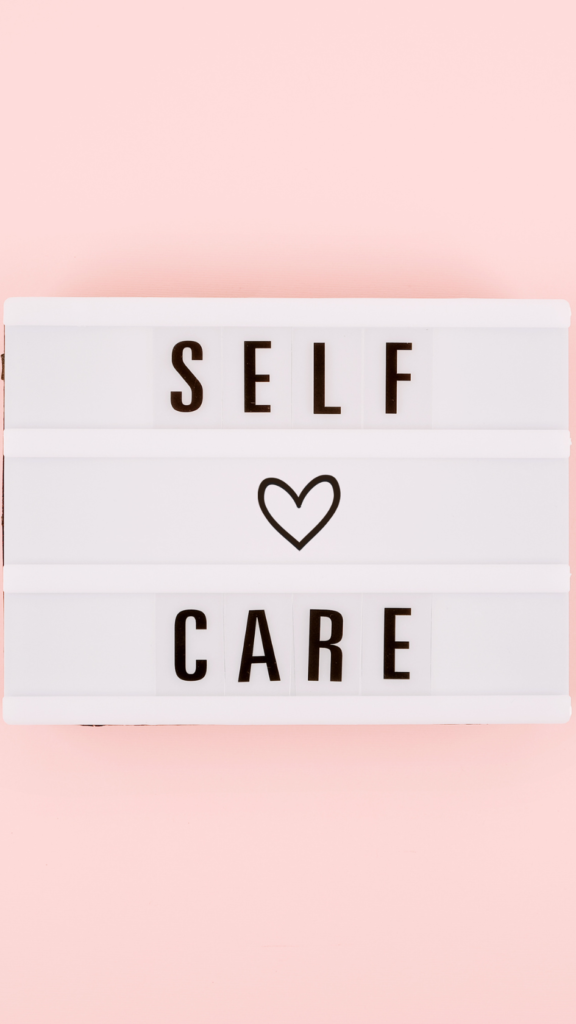Ultimate Guide to a Stress Free Lifestyle



In today’s fast-paced world, dealing with stressful situations has become an inevitable part of our lives. It’s a constant companion, whether it’s work-related stress, relationship stress, or financial stress. But remember, you’re not alone in this journey.
Welcome to your comprehensive guide to managing stress and enhancing your overall well-being, including mental health problems. Our mission is to provide you with the tools and resources you need to navigate your stress management journey effectively and take care of your mind. We aim to offer valuable health information to support you along the way
Stressful situations are a part of our everyday lives. They can be caused by work, relationships, financial issues, and other factors. These situations can have a negative impact on our mental health, affecting our mind and ability to complete tasks effectively.
While stress is a normal response, finding yourself in a stressful situation can cause symptoms that affect both the mind and body. Too much stress can lead to anxiety, depression, heart disease, and high blood pressure. This highlights the importance of effectively managing stress.
Stress is a common and stressful situation that affects people in various aspects of their lives. Whether it’s related to work, relationships, or personal challenges, stress can have a significant impact on our mental and physical well-being. We explore different techniques and approaches to provide relief and information to help you manage stress more effectively. From relaxation techniques and mindfulness practices to time management and self-care strategies, we will provide practical tips and insights to help you navigate the stressful situation and improve your overall well-being. By implementing these stress management techniques, you can regain control over things in your life, reduce stress-related symptoms, and promote a healthier, more balanced lifestyle.
Stress refers to the body’s reaction to any change that requires an adjustment or response, causing a stressful situation. It can have an impact on the mind and contribute to mental health problems. However, there are ways to find relief from this stress and improve your overall well-being.
When we experience stress, our bodies produce hormones such as cortisol and adrenaline, which help us respond to mental health problems by fighting or running away. This relief can alleviate symptoms and benefit the mind.
However, when stress becomes chronic or too intense, it can affect our overall well-being. Chronic stress can cause inflammation in the body and disrupt its natural balance leading to physical health problems such as immune system dysfunction and digestive troubles. Finding relief from chronic stress is important for maintaining good health. It is crucial to gather information about effective ways to manage stress and take necessary steps to alleviate its negative effects.
Prolonged exposure to stress hormones like cortisol has been associated with a range of physical health issues including:

Managing chronic conditions can be challenging, especially when it comes to reducing stress levels and finding effective stress relief. Stress hormones can worsen these conditions, but there are various stress relievers that can help alleviate the symptoms.
Stress has also been linked with mental health issues like:
Chronic stress over time can worsen underlying psychiatric disorders making their management challenging.

Stress is our body’s natural response to changes and challenges. It’s a physiological reaction that can sometimes be beneficial, pushing us to meet our goals and adapt to our environment. However, when stress becomes chronic or overwhelming, it can lead to serious health issues like heart disease, diabetes, and mental health disorders such as anxiety and depression. Understanding the nature of stress, its causes, and its impact on our bodies is the first step towards effective stress management
Stress comes in various forms and understanding these can help you manage it more effectively. Acute stress is short term and usually resolves quickly once the stressful situation has passed. It’s the kind of stress you feel when facing a challenging task or an exciting event. Chronic stress, on the other hand, is long-term and persists even after the stressor has been removed. This type of stress can be detrimental to your health if not managed properly. Episodic stress is frequent acute stress, leaving you feeling constantly on edge and in a state of crisis. Recognizing these types of stress is crucial in determining the most effective stress management strategies.
Stress can be triggered by a multitude of factors. Work-related stress is one of the most common, often resulting from heavy workloads, tight deadlines, or conflicts with colleagues. Relationship stress can arise from disagreements with loved ones, breakups, or family conflicts. Financial stress is another significant stressor, often stemming from debt, financial insecurity, or the pressure of providing for a family. Recognizing these triggers is the first step towards effective stress management.


Stress manifests differently in everyone, but there are common physical and emotional symptoms. Physically, you may experience headaches, muscle tension, fatigue, or digestive problems. Emotionally, stress can lead to feelings of overwhelm, anxiety, depression, and mood swings. Chronic stress can even lead to emotional exhaustion and social isolation. Recognizing these symptoms is crucial in identifying when you need to implement stress management strategies.
Stress management is crucial for maintaining overall well-being and leading a healthy lifestyle. It is a necessary skill to have in today’s fast-paced and demanding world. Effective stress management techniques can help individuals cope with the pressures of daily life, reduce the negative impact of stress on their physical and mental health, and improve their overall quality of life.
When stress is not managed properly, it can have detrimental effects on both the mind and body. Chronic stress can lead to a variety of health problems, including heart disease, high blood pressure, and weakened immune system. It can also contribute to mental health issues such as anxiety and depression. By implementing stress management strategies, individuals can reduce their risk of developing these health problems and improve their overall well-being.
Stress management techniques can vary from person to person, as everyone has different ways of coping with stress. Some common strategies include exercise, relaxation techniques such as deep breathing and meditation, time management, and seeking social support. These techniques help individuals to relax, reduce tension, and regain a sense of control over their lives.
In addition to the immediate benefits, stress management also has long-term advantages. By effectively managing stress, individuals can enhance their productivity, concentration, and problem-solving abilities. They can also improve their relationships, as stress often takes a toll on personal and professional connections.
Overall, stress management is a vital skill that everyone should prioritize. By incorporating stress management techniques into their daily lives, individuals can improve their overall well-being, reduce the negative impact of stress, and lead a healthier and more fulfilling life.
Stress management plays a crucial role in improving the quality of life. When we effectively manage stress, we experience numerous benefits that enhance our overall well-being.
Firstly, stress management helps to reduce the negative impact of stress on our physical health. Chronic stress can lead to various health issues such as high blood pressure, heart disease, and weakened immune system. By implementing stress management techniques, such as exercise, relaxation techniques, and proper sleep, we can minimize the detrimental effects of stress on our bodies.
Secondly, stress management allows us to maintain better mental and emotional health. When we are overwhelmed by stress, it can negatively affect our mood, concentration, and decision-making abilities. However, by practicing stress management, such as mindfulness meditation or engaging in hobbies we enjoy, we can alleviate anxiety and improve our emotional well-being.
Additionally, stress management helps to enhance our relationships and social connections. When we are stressed, we may become irritable, withdrawn, or have difficulty communicating effectively. By managing stress, we can improve our communication skills, foster positive relationships, and strengthen our support networks. Overall, stress management is essential for improving our quality of life by promoting physical health, mental well-being, and positive relationships.


A balanced lifestyle is the foundation of stress management. A healthy diet rich in whole foods provides your body with the necessary nutrients it needs to function correctly and cope with stress. Eliminating processed and sugary foods can help regulate blood sugar levels, which in turn can stabilize mood swings. Adequate sleep is also crucial, as lack of sleep can impair cognitive function and increase stress levels. Making these simple modifications to your daily routine can significantly reduce stress and improve your overall well-being.
Regular physical activity is a natural stress reliever. Exercise releases endorphins, the body’s natural mood lifters, while also helping to reduce feelings of anxiety and depression. Whether it’s a brisk walk, a yoga class, or a high-intensity workout, any form of exercise can help relieve stress. Aim for at least 30 minutes of moderate exercise most days of the week for optimal benefits.
Incorporating relaxation techniques into your daily routine can significantly alleviate stress symptoms. Deep breathing exercises, for example, are simple yet effective ways to reduce anxiety and promote a sense of calm. Yoga and meditation can also help reduce stress levels by promoting mindfulness and relaxation. Progressive muscle relaxation, a technique that involves tensing and relaxing different muscle groups, can also promote physical relaxation and reduce stress.
Professional therapies, such as cognitive-behavioral therapy, mindfulness-based stress reduction, and even counseling, can be extremely beneficial for managing stress. These therapies can help you identify and challenge negative thought patterns that contribute to stress, and develop effective coping strategies. They provide a safe and supportive environment where you can explore your stressors and learn practical techniques to manage them.
Effective time management can significantly reduce stress by helping you prioritize tasks, set realistic goals, and delegate responsibilities. By organizing your time effectively, you can reduce feelings of overwhelm and increase your productivity, leading to a more balanced and less stressful life.

Work-related stress is one of the most common types of stress people experience. It can be caused by a heavy workload, unrealistic expectations from supervisors, or even workplace bullying. To manage stress at work, it’s important to set boundaries that allow you to maintain a healthy work-life balance. Learning how to say no when you’re already overloaded with tasks is crucial. Communicate effectively with your colleagues and supervisors about your workload and what you’re capable of handling. This helps prevent the buildup of resentment and frustration that can lead to stress. Taking breaks throughout the day is also important for managing stress at work. Short breaks allow your mind and body to rest, re-energize, and refocus. If possible, take a walk outside during your break as it can help reduce your cortisol levels which are associated with stress.
Relationships are an integral part of our lives but they can also be sources of significant stress – whether it’s romantic relationships or familial ones. One way to manage relationship-induced stress is through open communication. Open communication allows for honest conversations that facilitate understanding between parties involved. It enables both sides to know each other’s perspectives which leads to building mutual trust in the relationship. Another way of managing relationship-induced stress is setting healthy boundaries. It’s essential that you establish boundaries that are respected by everyone around you as they define what behaviors are acceptable or not acceptable in a given situation. Spending quality time together with loved ones can also serve as an effective tool for reducing relationship-induced stress levels. Doing activities together such as watching movies or going on trips not only helps to relieve the stress but also strengthens the bond between parties involved.
Financial stress is another common type of stress that many people experience. It stems from a lack of financial security and stability. Managing financial stress requires creating a budget and sticking to it. Creating a budget means tracking all your expenses and having accountability for your spending habits. You should also be aware of how much you’re earning so that you can plan in advance on how to spend or save. Seeking financial advice is also crucial in managing financial stress as it helps you identify options for improving your finances. A financial advisor can provide guidance on steps you can take to improve your situation. Avoiding impulsive purchases is another strategy for managing financial stress. Impulse buying often leads to overspending which in turn causes more money problems and added emotional distress.

Creating a personalized stress management plan is essential for effectively managing and reducing stress in your life. Here are some steps to help you develop a plan that is tailored to your specific needs:
Resilience is the ability to bounce back from stress, adversity, failure, challenges, or even trauma. It’s not something that you either have or do not have; it’s a skill that can be developed over time. Building resilience can help you better cope with stress and improve your overall well-being.

Resilience doesn’t mean avoiding stress or hardship, but rather learning how to adapt and bounce back when they occur. Resilient people don’t dwell on failures or emphasize the negative. They acknowledge the situation, learn from their mistakes, and then move forward.
Building resilience takes time and intentionality. Here are some stress relief strategies to help you build your resilience and lower your stress level. These stress relievers can be a good stress reliever for you.
Having a positive outlook is a good stress reliever. It doesn’t mean ignoring the negative aspects of life, but rather trying to see the positive in every situation. It’s about maintaining a hopeful outlook and challenging negative thought patterns for stress relief.
Building strong, positive relationships with loved ones can provide stress relief by offering the needed support and acceptance in both good times and bad. Establish a support network of close family members, friends, and others who can offer stress relief through help and encouragement.
Change is a part of life and can be a good stress reliever. Embracing change allows you to adapt more easily to new situations and view these changes as opportunities rather than threats, which can provide stress relief.
Take care of your physical health through regular exercise, a healthy diet, and adequate sleep. This can help you stay resilient during stressful times. Also, engage in activities that you enjoy and find relaxing.
Look at stress as an opportunity for learning and growth. When faced with a challenge, try to view it as a chance to learn something new and improve your resilience.

One of the most effective long-term strategies for preventing and managing chronic stress is to prioritize self-care. Taking care of your physical, emotional, and mental well-being is crucial in reducing and managing stress levels. This can include engaging in regular exercise, getting enough sleep, and eating a balanced diet. Additionally, finding healthy coping mechanisms such as practicing mindfulness, deep breathing exercises, or engaging in hobbies can help alleviate stress. It is also important to establish healthy boundaries and learn to say no to excessive commitments or responsibilities. Building a strong support system of friends, family, or professionals can provide a valuable outlet for sharing feelings and seeking guidance. Lastly, it is essential to identify and address any underlying causes of chronic stress, such as work-related issues or relationship problems, and take steps to resolve or manage them effectively. By implementing these long-term strategies, individuals can significantly reduce the impact of chronic stress on their overall well-being.
Remember, stress management is not a destination, but a journey. And we’re here to guide you every step of the way. Explore our site for more resources, tips, and techniques to help you navigate your stress management journey. Together, we can create a healthier, happier, stress-free you.
